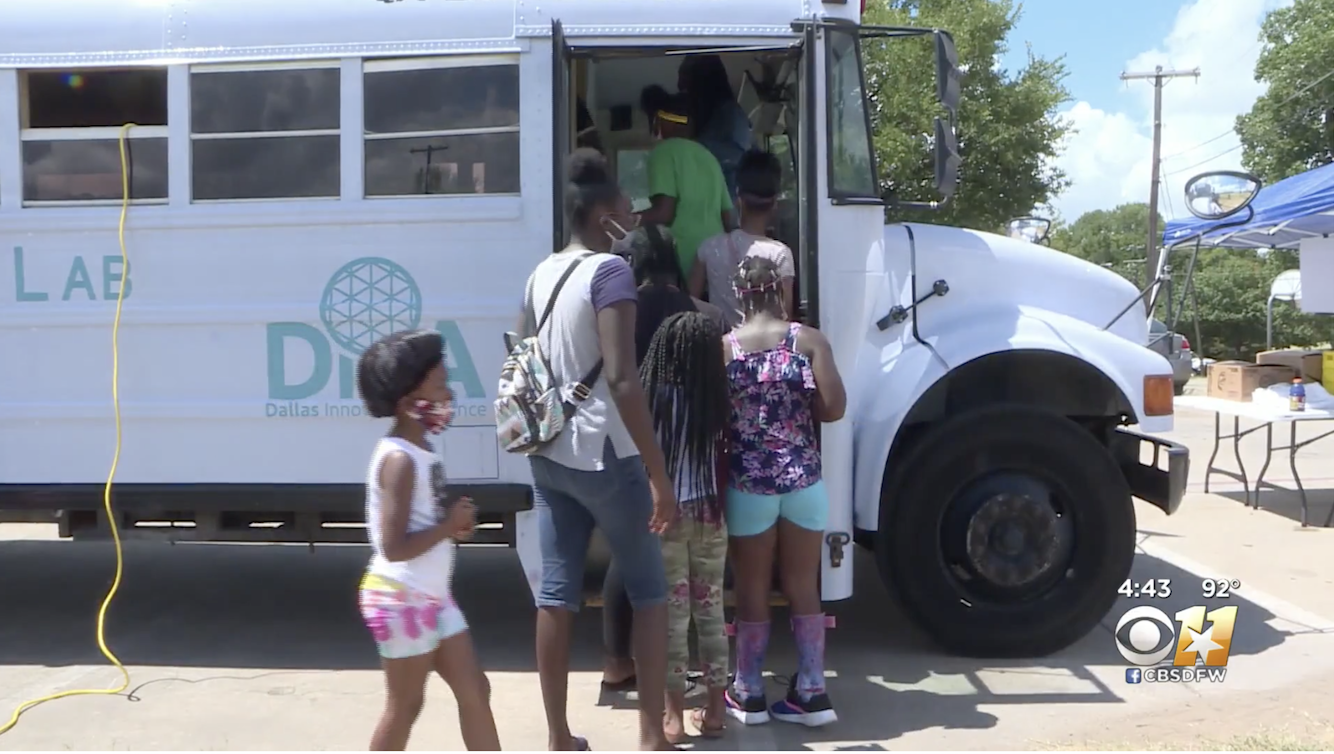How ‘pop up camp’ brings fun and opportunity to South Dallas kids during the pandemic
Marvin Anderson stretches his foot out in front of him, feeling around the asphalt for any obstructions. It’s pitch black.
Besides his feet, the only guide he has is the person behind him, steering him by the shoulders. One successful step. He feels around again, this time knocking over something with his foot.
Shortly after, a splash of cold water hits him. Marvin, 12, peels back the blindfold covering his eyes.
He knocked over an orange cone. A water balloon to the face alerted him to that fact.
Marvin and about 40 other kids are playing minefield in a parking lot next to Wahoo Park in South Dallas.
Besides getting relief from the midday heat, the game also serves another purpose: To promote communication, collaboration and problem solving.
After everyone navigates the cones, Renata Surles, community engagement director at Networking Knights, and co-founder Issiah Thomas Jr. ask the kids what they learned from the challenge and what it is like to be blindfolded.
Surles said games like minefield expand the way children see the world.
“Black communities — minority communities — we don’t get these types of opportunities,” Surles said. “We don’t get these questions or thought-provoking things, so we wanted to involve ourselves so that we can allow them to think differently.”
The nonprofit, which provides leadership and entrepreneurial courses for youths, partnered with Frazier Revitalization for weekly pop-up camps this summer.
Frazier Revitalization serves ZIP codes 75210, 75215 and 75223 in South Dallas. Since the first week of June, the organization has hosted the camps on Wednesday in the parking lot next to its community center on Elsie Faye Heggins Street.
For the past four years, Frazier Revitalization has held a week-long summer camp.When the coronavirus caused schools to shut down in March, the Frazier team conducted a survey to assess how students in South Dallas were adjusting.Parents in the neighborhood were struggling. They lacked access to high-speed internet, which made online assignments difficult. And the families with internet had issues learning how to use the different platforms required for virtual instruction.Yasmine Lockett, director of education and engagement, knew that a virtual camp wouldn’t work for the community. That’s how the pop-up camp idea was born.“We were trying to figure out how on earth we would have a cleaning service to help us keep everything disinfected, take temperatures — how were we going to do this?” Lockett said.
Quincy Guinyard, community liaison for Frazier Revitalization, grew up in South Dallas. He said children who don’t know how to express themselves might turn to violence, especially now while adjusting to life in a pandemic.
“The moment you let them outside, they’re not communicating, they’re fighting with one another,” Guinyard said. “With the pop-up camps, it gives them an environment to think outside of the box and see people that care about them outside the home.”
Every Wednesday, Networking Knights provides the children with take-home activities to do throughout the week. Each activity has a goal. On water day, kids received a “Getting to Know Me” sheet that had blanks for prompts such as, “My dream business is…” and, “The most important thing to me is…”
The idea is to teach self awareness and creative thinking.
The previous week’s assignment was a bingo board. Each space had a different activity: Eat healthy, laugh, write a story, take 10 deep breaths.
More than half of the children bring their completed activities back the next week or share them on social media.
“One of the things we really pride ourselves on is building relationships with the youth and creating a safe space for them to be able to express their feelings,” Thomas said.
“Mental health and wellness is really important, especially for our kids.”
Angel Sullivan, 8, has been at the pop-up camps each week. Since the first week of June, she has learned how to grow a flower and make a light with batteries and a wire.
Her mother, Sharron Blair, said the camps have helped Angel socialize more during the pandemic. She has two teenage brothers, so going to the camps allows her to play with kids her age.
Shalonda Anderson, Marvin’s mother, didn’t make it to Frazier until the eighth pop-up camp, but she said it was good for her family.
“It keeps the kids busy and out of trouble,” Anderson said.
Frazier Revitalization is hosting two more camps, with the last one ending on Aug. 12.
“It’s risky. We know that there’s a virus going around,” Lockett said. “But we’re also out there modeling so they understand if you really have to go outside, put your mask on. … The beautiful thing is, we had a lot of kids go home and tell their parents, ‘I got these masks for you from Frazier.’”


















